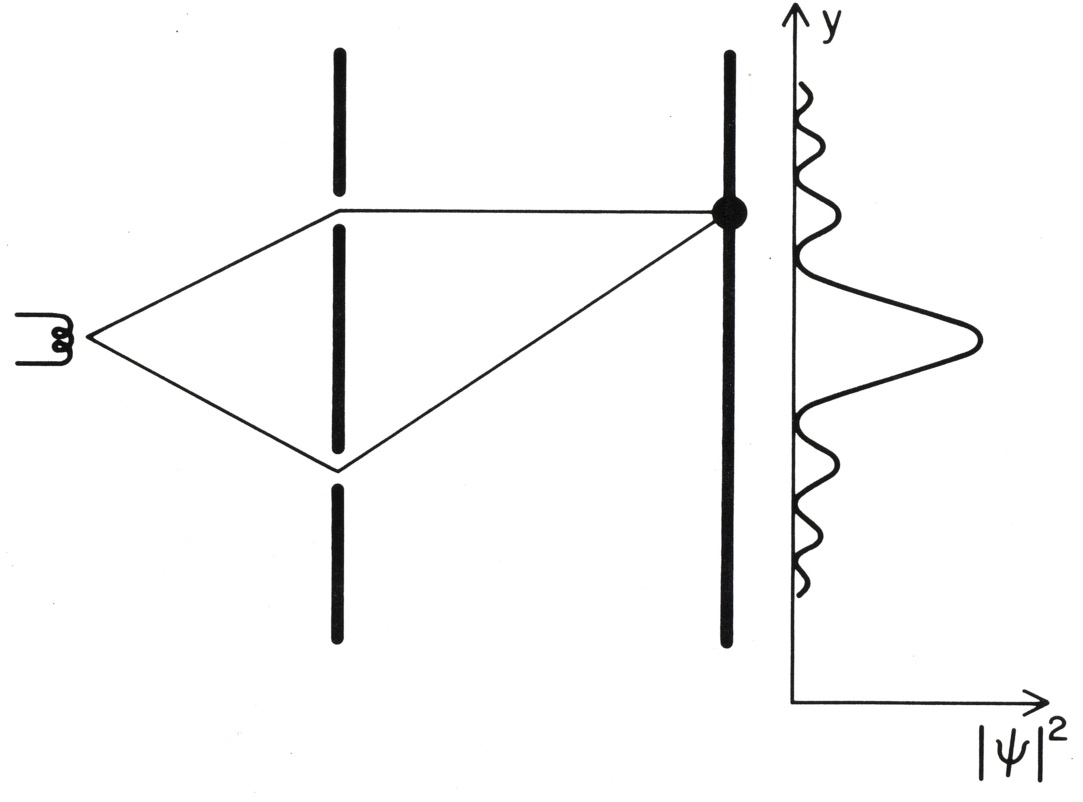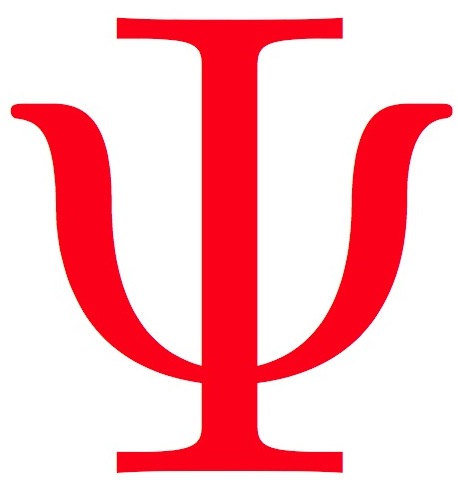Decoherent Histories Quantum Mechanics
Extended Probabilities
Quantum theory exhibits sets of alternative histories that can be described but which cannot be assigned probabilities because of quant um interference. The two-slit experiment provides the simplest example. Histories where the electron goes through the upper slit or the lower slit can be described, but quantum interference prevents them from being assigned probabilities. However, quantum theory can be generalized so they are assigned extended probabilities that are sometimes negative. The predictions of this generalization are the same as decoherent histories quantum mechanics, but the extension is a springboard for studying further generalizations of quantum mechanics that are experimentally distinguishable from decoherent histories. The three papers are listed in order of importance, which opposite to the order in which they were published.
um interference. The two-slit experiment provides the simplest example. Histories where the electron goes through the upper slit or the lower slit can be described, but quantum interference prevents them from being assigned probabilities. However, quantum theory can be generalized so they are assigned extended probabilities that are sometimes negative. The predictions of this generalization are the same as decoherent histories quantum mechanics, but the extension is a springboard for studying further generalizations of quantum mechanics that are experimentally distinguishable from decoherent histories. The three papers are listed in order of importance, which opposite to the order in which they were published.
Decoherent Histories Quantum Mechanics with One `Real' Fine-Grained History [149]
(with Murray Gell-Mann) Decoherent histories quantum theory is reformulated with the assumption that there is one “real” fine-grained history, specified in a preferred complete set of sum-over-histories variables. This real history is described by embedding it in an ensemble of comparable imagined fine-grained histories, not unlike the familiar ensembles of statistical mechanics. These histories are assigned extended probabilities which can sometimes be negative or greater than one. As we will show, this construction implies that the real history is not completely accessible to experimental or other observational discovery. However, sufficiently and appropriately coarse-grained sets of alternative histories have standard probabilities providing information about the real fine-grained history that can be compared with observation. We recover the probabilities of decoherent histories quantum mechanics for sets of histories that are recorded and therefore decohere. Quantum mechanics can be viewed as a classical stochastic theory of histories with extended probabilities and a well-defined notion of reality common to all decoherent sets of alternative coarse-grained histories.
Quantum Mechanics with Extended Probabilities [142]
The quantum mechanics of closed systems is formulated using an extension of familiar probability theory that incorporates negative probabilities. Probabilities must be positive for sets of alternative histories that are the basis of fair settleable bets. However, in quantum mechanics there are sets of alternative histories that can be described but which cannot be the basis for fair settleable bets. Members of such sets can be assigned extended probabilities that are sometimes negative. A prescription for extended probabilities is introduced that assigns extended probabilities to all histories that can be described, fine grained or coarse grained, members of decoherent sets or not. All probability sum rules are satisfied exactly. Sets of histories that are recorded to sufficient precision are the basis of settleable bets. Prospects are discussed for using this formulation to provide testable alternatives to quantum theory or further generalizations of it.
Linear Positivity and Virtual Probability [128]
This paper investigates he quantum theory of closed systems based on the linear positivity decoherence condition of Goldstein and Page . Quantum interference between members of a set of alternative histories is an obstacle to assigning probabilities that are consistent with the rules of probability theory. A quantum theory of closed systems therefore requires two elements; 1) a condition specifying which sets of histories may be assigned probabilities, and 2) a rule for those probabilities.The linear positivity condition of Goldstein and Page is the weakest of the general conditions proposed so far. Its general properties relating to exact probability sum rules, time-neutrality, and conservation laws are explored. Its inconsistency with the usual notion of independent subsystems in quantum mechanics is reviewed. Its relation to the stronger condition of medium decoherence necessary for classicality is discussed. The linear positivity of histories in a number of simple model systems is investigated with the aim of exhibiting linearly positive sets of histories that are not decoherent. Extended probabilities give a simple and general way of formulating quantum theory.The various decoherence conditions are compared in terms of their utility for characterizing classicality and the role they might play in further generalizations of quantum mechanics
